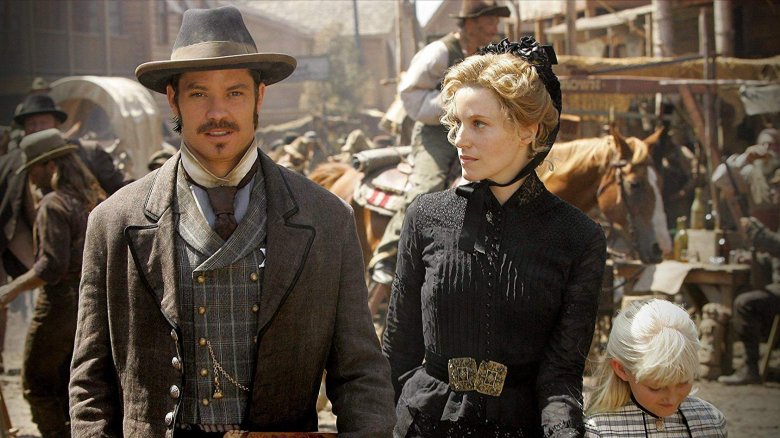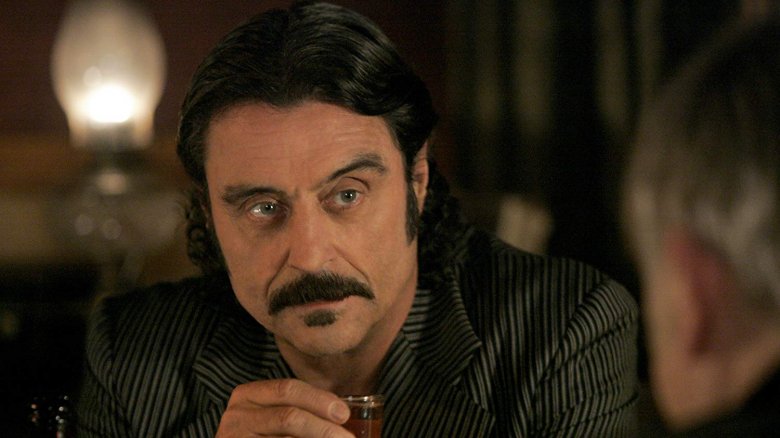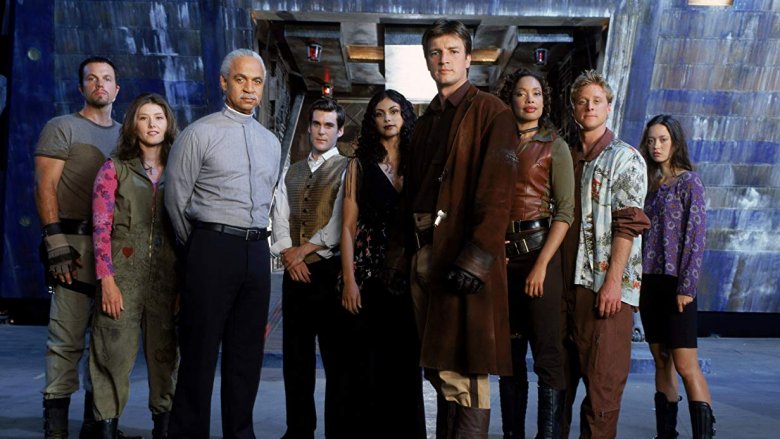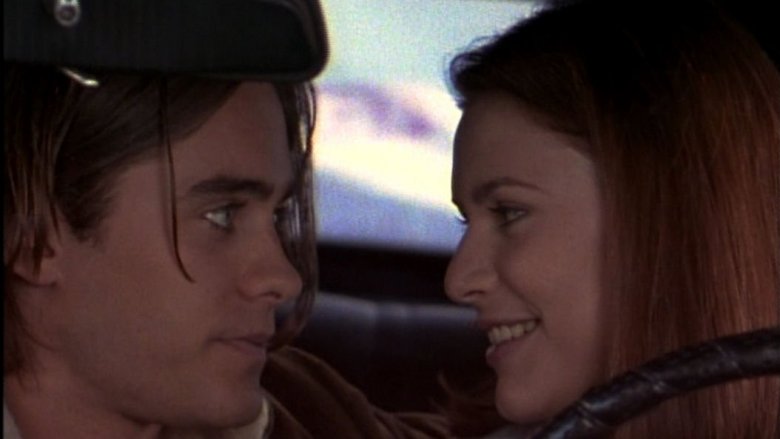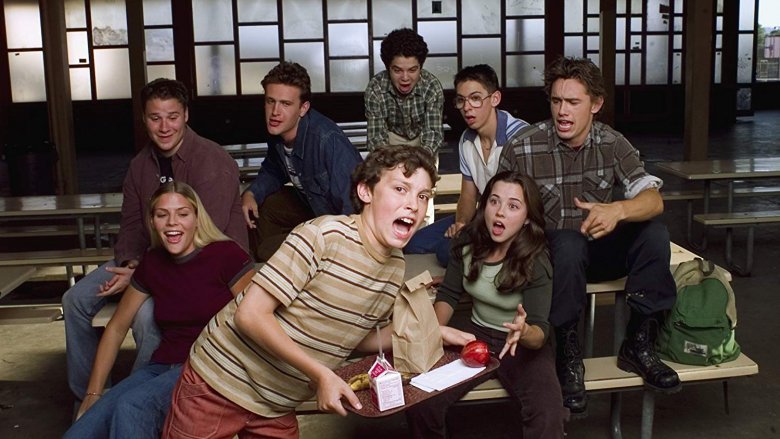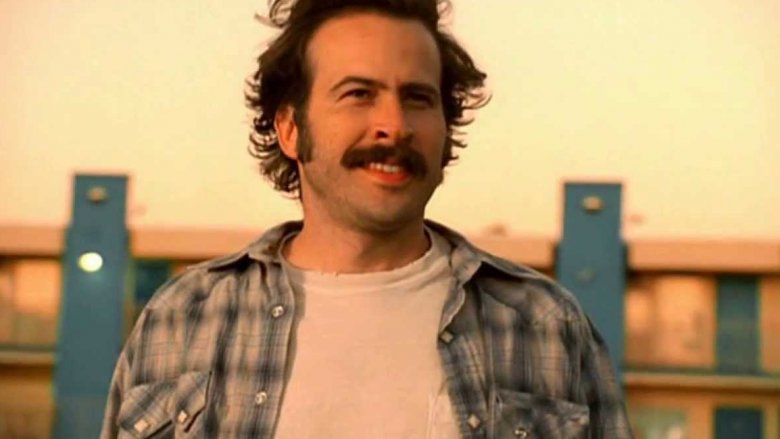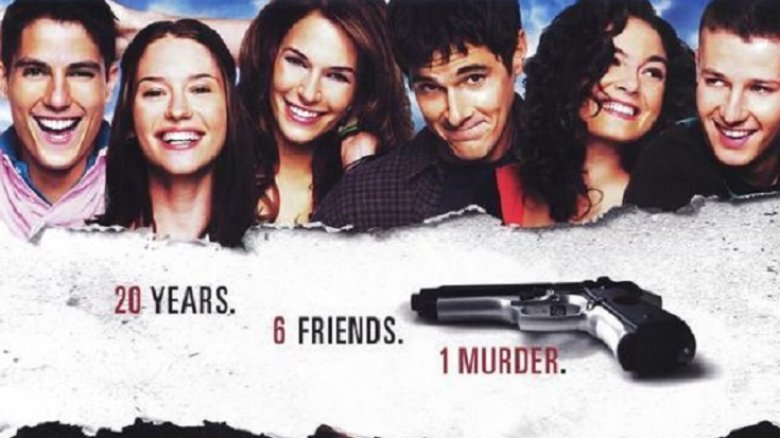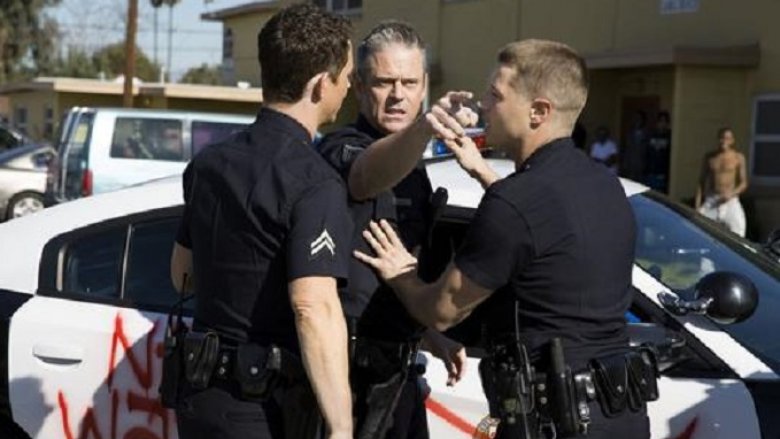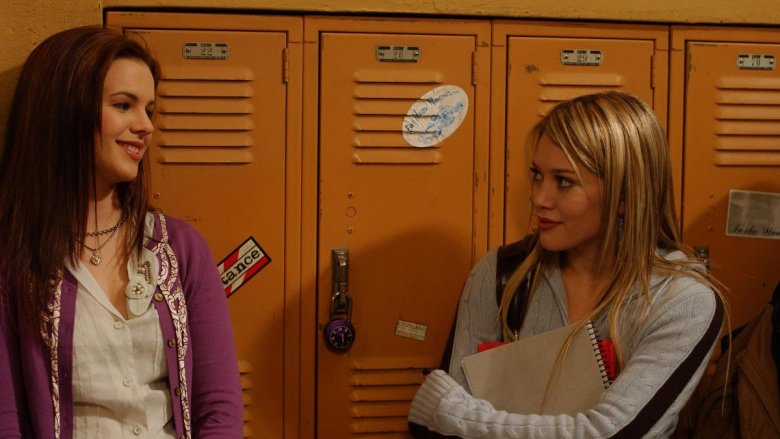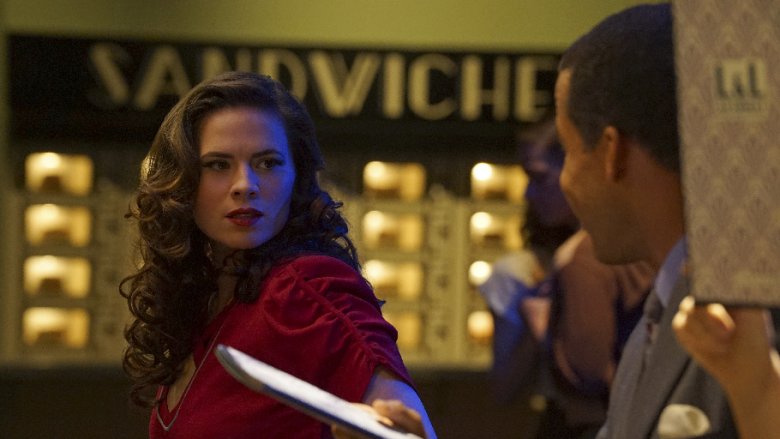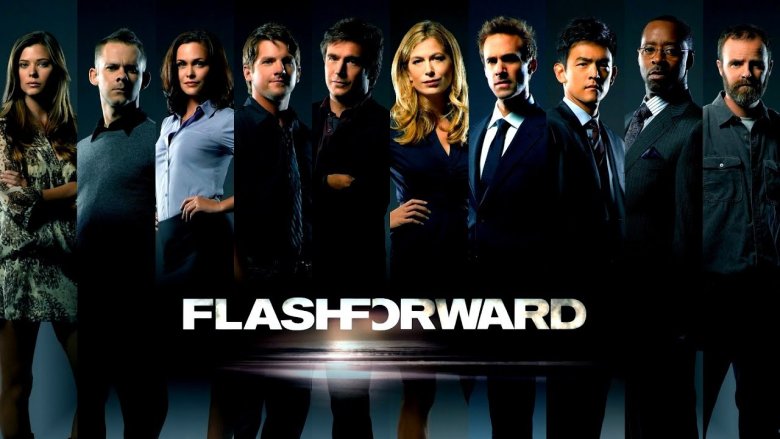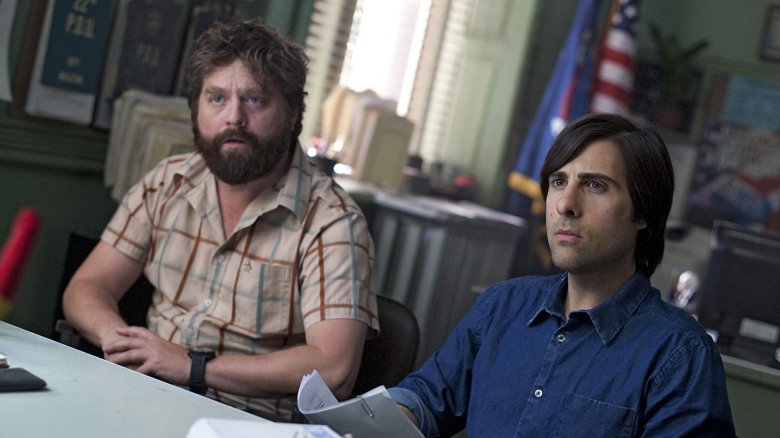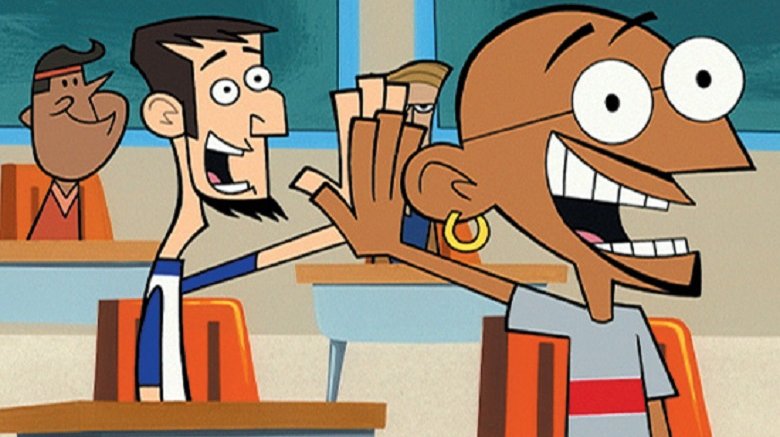Cancelled TV Show Endings You Never Got To See
It would be wonderful if all of our favorite shows were able to take the Game of Thrones or Breaking Bad route, with critical and commercial success allowing the writers to tell the whole story that they want to tell, letting these shows wrap up exactly when and how the creators intended. Not every show can have that luxury.
Some shows never quite gain a large enough fanbase to get renewed for more seasons. Sometimes extenuating circumstances, like the 2007 Writer's Guild of America strike, occur and cause irreparable damage to a show's narrative arc. Other times, networks are just unable to fit a show in with the type of programming that proves profitable.
Whatever the reasons, not every show gets wrapped up with a neat little bow at the end. These are some of our favorite shows that never got to tell their full story, cancelled before we got to see how the writers really wanted to end things.
Deadwood had a lot of story left to tell
Deadwood is still an incredible show. David Milch's deconstruction of the western was anchored by strong performances from an incredible ensemble fronted by Timothy Olyphant and Ian McShane. Despite the show's award-winning reputation and fairly strong ratings, it was abruptly cancelled at the end of its third season. It was obviously still building towards... something, as there were large chunks of time dedicated to characters whose roles in the story were not yet clear. Remember Brian Cox's Jack Langrishe and his theater troupe?
Milch was a notoriously difficult creator to work with (and it sounds like he had some serious personal problems outside of the show, like massive gambling debts), but it's unfortunate that he didn't quite get to put his spin on the downfall of Deadwood. There have been rumors of a Deadwood movie to wrap up the story for years, and it's finally set to debut on HBO in May 2019.
What were Milch's thoughts about Deadwood's ending before the movie was greenlit? Well, he gave an interview in 2008 in which he said it was the audience's job "to accept the part of the story which we take to have been untold as residing in the realm of the untold." So... there you go.
Firefly was reborn in another medium
Poor, poor Firefly. Joss Whedon's sci-fi western never stood a chance. Fox, the show's original network, bungled the marketing and storytelling so badly that it never even made it out of its first season. Business Insider details several of the missteps the network made with the show, including trying to change central plot points and character backgrounds, marketing the show as a quippy action comedy, and airing the episodes out of their intended order.
This last bit is the especially infuriating one — the pilot, which introduces characters and central conflicts, was not the first episode aired. Who are these characters? Why are they doing what they're doing? Who knows? No one did at the time, because the original pilot was withheld until the end of the season. Genius.
Only 11 of the 14 episodes shot for the first season aired originally. It wasn't until Firefly was picked up for reruns that the show aired in the proper order and in its entirety. And Whedon got to give the story a bit of closure with 2005's follow-up movie Serenity, but the story was clearly built to tell its tale through the long form medium of television.
And poor Joss Whedon. He was apparently laughed out of Hollywood and never got to work on another major action sci-fi hit again [citation needed].
My So-Called Life ended on a massive cliffhanger
Although completely different in subject matter, My So-Called Life suffered a similar fate to Firefly — a small but dedicated fanbase was not enough to keep the show afloat, and it was cancelled after only one season. Like Firefly, My So-Called Life also went on to find success in syndication, but that's small consolation to fans who wanted to get some resolution to the major cliffhangers that were never answered.
However, we're in luck. Show creator Winnie Holzman and several members of the cast sat down with Elle in 2016 to talk about the impact of the show and where it would have headed if it had been picked up for a second season.
The major cliffhanger that ended the first season was who Angela (Claire Danes) was going to end up in a relationship with: Jordan (Jared Leto) or Brian (Devon Gummersall). Holzman had the answer to that question, as well as insight into what fans could have expected from season two. "I pictured a situation where Angela and Jordan are an item, Delia and Brian are an item, and Angela and Brian are constantly looking to each other for advice and help with their respective dysfunctional relationships," she revealed.
The second season would have also introduced a plot point where it came out that drama teacher Mr. Katimski was gay, exploring how the various characters would respond to that. The idea that such a story would have been a major, controversial issue illustrates what a different time the '90s were.
Paul Feig had big plans for Freaks and Geeks
The cast of Freaks and Geeks went on to enormous success, and it's astounding that the show was cancelled after just one season. It also ended on a major cliffhanger, with main character Lindsay (Linda Cardellini) ditching her classes to follow the Grateful Dead. Creator Paul Feig didn't have a complete idea of where her character would go from there, but he knew the second season was going to open with her being taken out of a concert on a stretcher. Thus, she would be a total outcast once she returned home.
In an interview with Vanity Fair, Feig detailed the direction that several other characters would have headed. The story of Sam Weir (John Francis Daley) would be autobiographical, telling of Feig's bizarre relationship with his high school drama teacher. Neil (Samm Levine) would start to get into swing choir, which would be a semi-autobiographical story from writer Judd Apatow. Bill (Martin Starr) would discover an innate talent for basketball. Daniel (James Franco) would wind up in jail. Kim (Busy Phillips) would get pregnant. Nick (Jason Segel) would be moving towards military service.
Essentially, Feig had a huge amount of stories to tell with his ensemble cast. Maybe he could bring them all back together for a high school reunion some day?
My Name is Earl's final shot was a To Be Continued... title card
My Name is Earl ran for four seasons on NBC, and it was expected to get one more season. Greg Garcia, the show's creator, hosted a Reddit AMA where he revealed all sorts of juicy details about the cancellation of the show. Interestingly, Garcia claimed that NBC told him he was safe to end the season with "To be continued..."
They then cancelled the series. In the season four finale, several things we had known about characters (parentage, for instance) had been thrown into question, with season five promising closure. Unfortunately, we never got it.
Garcia did say how Earl's list would have been completed, however. "The basic idea of the ending was that while he was stuck on a really hard list item... he runs into someone who had a list of their own and Earl was on it... He asks them where they got the idea of making a list and they tell him that someone came to them with a list and that person got the idea from someone else. Earl eventually realizes that his list started a chain reaction of people with lists and that he's finally put more good into the world than bad. So at that point he was going to tear up his list and go live his life. Walk into the sunset a free man. With good karma."
Reunion set up a massive murder mystery... and never solved it
Reunion was a massive undertaking. The short-lived murder mystery was set to run for (at least) 20 episodes, with each episode chronicling a year in the lives of six people while a parallel story unfolded revealing a murder at their 20-year high school reunion. The first episode showed their 1986 graduation, with the finale set to catch up with the 2006 murder.
In its initial run, the show only aired nine episodes.
The identity of the murder victim, Samantha, was not even revealed until the fifth episode, and Reunion was never able to sink its hooks into an audience. However, it does sound like the show's creator, Jon Harmon Feldman, had a pretty solid idea who the killer would wind up being.
According to TV Series Finale, there were several possible options as to who would wind up being the killer on the show, but executives and the writers were leaning towards Samantha's daughter, whom she had given up for adoption in the very first episode. However, a Fox executive had said that was just a possibility, and many more paths existed that the creative team could have followed.
Southland's main character was shot by his fellow officers and... that's the end
Southland had a quite a rocky go of things. The first season of the cop drama aired on NBC, and was cancelled just before the second season was scheduled to air. TNT picked it up and ran with it for four more seasons. Unfortunately, the sixth season did not get picked up, leaving a main character's fate completely unanswered.
Off-duty officer John Cooper storms over to his neighbor's house and shuts off a loud generator that is keeping him awake. When things escalate and eventually turn physical, Cooper loses it and beats another man practically to death, not even stopping when the on-duty police arrive. When Cooper stands up, covered in blood and holding a gun, the police open fire on him.
And that's it.
We never learn Cooper's fate, but it seems likely he would have been back. Michael Cudlitz, the actor who played Cooper, seemed confident he would have returned. Outside of that, we aren't sure where Southland would have headed. The last update about it was a rumor about the possibility of a movie to wrap everything up, but there has been no new information on it for years. Don't hold your breath.
Joan of Arcadia literally spoke to God
Joan of Arcadia was a pretty respectable hit its first season, averaging over ten million viewers. USA Today writes that the show's viewership dropped dramatically by the time the second season rolled around, losing about 20 percent of people watching it. CBS decided to shutter it after the second season finished, with no apparent hope of the show returning.
It's too bad, as Joan of Arcadia seemed ready to ramp into some much heavier material. In the second season, the show introduced a devilish character who was sure to cause problems for much of the cast. In addition, the season ended with God telling Joan that her fight was only beginning. Considering Joan had already been put through the ringer, it seemed there were big things in store for the show.
Agent Carter ended with a character bleeding on the floor
Marvel's television shows have occupied a strange place in our superhero-dominated pop culture landscape. Netflix saw huge success with shows like Daredevil and Jessica Jones, but they barely made mention of the MCU at large. Shows like Agents of S.H.I.E.L.D. and ABC's Agent Carter were more tied into the movies, but didn't seem to quite gain the reach of their Netflix brethren.
Agent Carter was a well-received show with a bankable lead in Hayley Atwell, and it was one that Jeph Loeb, Marvel's executive head of television, was sad to see go. He told Entertainment Weekly, "We are, at the end of the day, beholden to the network that we're on. So for all of you Agent Carter fans out there, we didn't cancel the show."
Unfortunately, the show ended with a bit of a dud episode, and a ton of mystery as to where it was going. An enigmatic figure entered the scene, murdered Jack Thompson, and stole a boatload of information on Peggy Carter. We never learned Jack's fate or the identity of the shooter. There were rumors about Netflix potentially picking up the show, but that idea was dead in the water when all their other Marvel shows started dropping like flies. It seems likely we'll never know, unless the MCU decides to bring back Peggy.
FlashForward's creator had a massive idea to fix the series - but it was too late
FlashForward was trying to be ABC's followup to Lost — the next big, mysterious drama with an ensemble cast. They wanted to find something that people would obsess over and, unfortunately, never really found it. FlashForward put forth an interesting premise, but wasn't able to capitalize. A midseason shift to make the show more viewer-friendly further alienated the fanbase it did have, and it was canned after just one season.
Robert Sawyer, who wrote the novel that the show was based on, pitched an interesting idea on how to fix the show's problems after it was cancelled. He proposed an apocalyptic event — literally having the world population, minus a few people, killed off. He essentially wanted to bring the show even closer to Lost — a major disaster, a small group of survivors, a series of flashbacks introducing new characters as needed, and a shady group working behind the scenes.
Sawyer posted his entire idea to his Facebook page, saying "What we end up with is a Season Two that really is about a disaster, but a much bigger one than Lost ever portrayed, with the stakes — the resurrection of humanity — much higher than any Lost ever dealt with. We end up not just being the new Lost, but Lost to the max — bigger, grander, and even more involving."
Bored to Death ended with two half-siblings kissing
Bored to Death was a bizarre HBO comedy with quite a trifecta of leading players: Jason Schwartzman, Zack Galifianakis, and Ted Danson. Throw in a huge ensemble of famous actors and comedians who were always game for the show's weirdness, and you had quite a strong HBO hit. Creator Jonathan Ames certainly thought so, and was absolutely crushed when HBO cancelled the show after just three seasons. It was especially rough because of the way the third season ended – leaving fans completely confused as to what Ames was trying to say.
The final episode concluded with Jonathan (Jason Schwartzman) discovering that he was actually a half-sibling of Rose (Isla Fisher). When the two met, many fans assumed he would tell her this information. Instead, he kissed her and withheld it from her.
Ames was broken up over the fact that many fans thought he planned on having Jonathan keep that information from Rose for the rest of the show. He told Vulture, "I don't want people to think he wouldn't tell her. He wants to tell her, but he was just weakened in that moment... But in the next season, I was going to put her in a sanitarium. She was going to have a total breakdown."
Oh, good. It sounds like everything would have worked out just fine.
Clone High saw all its main characters cryogenically frozen
Clone High never found the audience it needed. A bizarre animated comedy about clones of famous historical figures in high school with one another, it was a bit ahead of its time. The show ended with all the clones cryogenically frozen at the end of their junior year — a decision that was deliberate, because the creators were pretty sure they wouldn't be coming back.
In an interview with Film School Rejects, creators Phil Lord and Chris Miller said that after leaving the cast frozen, they would have started season two with the characters walking to school to begin their senior year, none the wiser. The whole season would then have them trying to piece together that missing time. However, they were pretty sure they would not be returning for a second season, so freezing the characters was part of the joke. Lord said, "We thought it was funny that we would leave the series in suspended animation. Maybe forever. So it was a very deliberate move."
Eventually, the characters of Clone High would have made it to college. In an alternate universe, they did. Eagle-eyed viewers of Spider-Man: Into the Spider-Verse, another Lord and Miller production, can spot a Times Square billboard advertising Clone College, a movie featuring JFK and Abe Lincoln.
